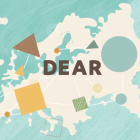Joining Forces: the DEAR Multi-Stakeholder Group
News details

The DEAR Multi Stakeholder Group (MSG) is a consultation forum promoted by the European Commission. Its members are civil society organisations, youth groups, local authorities, scholars, international networks, agencies and ministries of EU member states.
The MSG met in March to discuss several issues connected with global education and awareness raising with DG INPTA (DG for International Partnerships of the European Commission). What policies and strategy frameworks foster global citizenship education (GCE)? How can people better understand the interlinkages between local and global issues and take action? How do institutions, practitioners, scholars, young people engage with regard to Development Education and Awareness Raising (DEAR)?
Policy documents and strategies, both at European and global level, give greater recognition to the role of (global) education in the pursuit of a fairer and greener world. The current DEAR policy environment includes relevant international frameworks, such as the UN Transforming Education Summit (UN TES), encouraging governments to prioritise education and GCE.
In the EU, recent Council Conclusions on Education for Sustainable development (June 2022), Council Conclusions in support of the Youth Action Plan (November 2022) and EU Year of Skills (inaugurated on 9 May 2023) put forward and recognise the transformative role of education for sustainable development and global citizenship as an instrumental tool for the achievement of the sustainable development goals (SDGs).
The UN Knowledge Hub is an online platform steered by the UN where all stakeholders, including LAs and CSOs/youth organisations, donors and partner countries can share good practice on education. Furthermore, 2024 will be the African Union Year of Education, and the UNESCO 1974 Recommendation on international understanding is undergoing a revision process.
They are all crucial signs of growing attention and tools. However, shrinking budgets for education and GCE, as well as the lack of cross-sector cooperation might hamper the process.
Different initiatives are funded by the EU DEAR Programme to foster global education in Europe and beyond. In addition to those led by CSOs, some initiatives are promoting policy actions at different levels. Currently, they are:
The Global Education Network Europe (GENE), that brings national and European policy-makers together on DEAR/GCE policies and practices. Recently, GENE and institutions from all over Europe succeeded in drafting and undersigning the ‘Dublin Declaration’ - the European Declaration on Global Education to 2050. The Declaration sets a new strategy framework for improving and increasing Global Education in Europe through the commitment of national institutions.
GENE also helped establish the ANGEL Network (Academic Network on Global Education & Learning), the first network to create ties among Global Education researchers and scholars and bridge the gap between research and policy-making in the field. ANGEL offers several resources to policy makers and practitioners alike: the GCE Digest, a reasoned bibliography of research materials relevant to DEAR/GCE; the database of GCE researchers and experts; as well as policy briefings, conferences, summer schools and webinar series.
The iLegend initiative (edition III: 2022-25) is a joint project of the European Union and the Council of Europe, implemented by the North-South Centre. It promotes and mobilises commitment for Global Education as an interdisciplinary approach, and supports learners in understanding and assuming individual responsibility for social, ecological, political, economic, and ethical issues.
Finally, the EU Presidency projects support coordination among national platforms of civil society to promote and advocate for international partnerships and GCE-related topics in respective countries, during their semester of EU Council Presidency.
Multiple perspectives, cooperation and multi-stakeholder approaches are the common ground of all these initiatives as alliances and dialogue are paramount for system change to happen.
Photo by Dan Meyers on Unsplash

Log in with your EU Login account to post or comment on the platform.